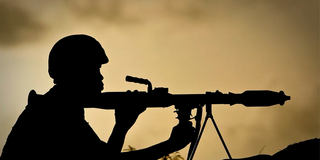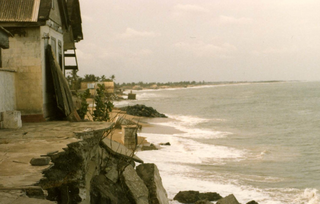News
Niger’s Junta Takes a Bazooka to the Regional Rule of Law
A year ago Niger was seen as a bright spot in a region beset with a trifecta of violent extremism, poverty and coups d’etat.

Research Director, The Brenthurst Foundation

Director, The Brenthurst Foundation

Following a coup on 26 July this year, the deposed president of Niger, Mohamed Bazoum, has been under house arrest with his wife, Hadiza Mabrouk Bazoum, and son, Salem.
Bazoum, the first Nigerien leader to take office after a peaceful change of power, was elected president after the February 2021 election. His term of office promised to bring much-needed reform and economic growth to the destitute West African country.
In 2022, Bazoum oversaw an economic revival, with GDP growth rebounding to 7.2% on the back of services and major infrastructure projects, according to the African Development Bank.
In a coup motivated purely by the seizure of power, Bazoum was dismissed by members of his presidential guard who claimed they were preventing “economic and security problems”, a claim which is not supported by the facts on the ground.
Presidential Guard commander General Abdourahamane Tchiani proclaimed himself supreme leader and President of the National Council for the Safeguard of the Homeland – and put Bazoum under house arrest.
According to his family, Bazoum and those held with him have no access to running water.
Ecowas demand
Responding to the coup, the West African regional organisation, Ecowas, demanded that Bazoum be reinstated, and imposed economic sanctions, freezing all financial transactions between its members and Niger.
Bazoum remains under arrest despite a ruling by the Ecowas Court of Justice that he be released.
The court’s decisions are not subject to appeal and are binding on all Ecowas institutions, including the Conference of Heads of State, Parliament and Commission, and on all national courts of member nations.
The present government of Niger has acknowledged the court’s legitimacy and recently brought the matter of sanctions against Niger before its judges.
Niger has also been suspended from the Permanent Council of La Francophonie (CPF) over Bazoum’s continued arrest.
In a statement, the organisation said: “The CPF called for the immediate and unconditional release of President Mohamed Bazoum, members of his family as well as those of his government also sequestered. It demands the rapid restoration of constitutional order and democracy in Niger and calls on the transitional authorities to establish a timetable for exiting the transition.”
Regional coups
The coup and the illegal detention of Bazoum are symptoms of an assault on democracy in the region which has seen coups and government repression of basic freedoms accelerate over the past decade.
Since 2011, governments across the Sahel – a 1,000km wide belt south of the Sahara Desert, stretching 5,400km from the Atlantic Ocean to the Red Sea – have been undone via the barrel of a gun in Mali, Chad, Sudan, Burkina Faso, Guinea and now Niger; in some instances, more than once.
The overall number of African coups averaged four a year between 1960 and 2000. This fell to two per year for a period, but has risen recently.
In 2021, six coups or attempted coups were recorded, with successful putsches in Chad, Mali, Guinea and Sudan and failed takeovers in Niger and Sudan.
In 2022, there were two successful coups in Burkina Faso.
It’s looking like the bad old coup days of the 1970s.
The coups and their aftermath illustrate deeper problems than simply the immature and volatile state of civil-military relations. They go to the heart of the nature of the state.
The emergence of “terrorist states” amid this failure, and the presence, since 2022, of the Wagner group, complicate things further.
Recognising this pernicious trend, addressing the Ecowas parliament, the president of the Ecowas Court of Justice, Justice Edward Amoako Asante, spoke out against the “creeping incursion of the military into the region’s politics.”
“It is undeniable that except appropriate action is taken to arrest the creeping military incursion into our politics, democracy is under threat with implications for institutions such as the parliaments and the courts which call for collective action, “ he emphasised.
“Democracy, he said, “remains the best form of government that requires the collective effort of the leadership and followership to work.”
Niger’s junta claimed in October that it had prevented President Bazoum from escaping.
“The strong reaction of the defence and security forces made it possible to foil this plan to destabilise our country,” a military spokesman said on national television in a move widely viewed as a desperate attempt to justify the ongoing incarceration of Bazoum.
Stark consequences
The consequences of the drift away from democracy are stark for Niger.
The World Bank has warned that growth could fall to 2.3% in 2023 or -1.5% in per capita terms, spelling disaster for an already poverty-stricken country.
The per capita decline is amplified by the country’s rapidly growing population.
From 3.4 million people in 1960 to 27.6 million in 2023, Niger has a population growth rate of 3.3% or 7.1 children per mother, and ranks firmly among the poorest 10 states worldwide in annual per capita income at just $585, above only Burundi, Afghanistan, Syria, CAR, Sierra Leone, Madagascar and Mozambique.
Mohamed Bazoum
Bazoum was a founding member of the Nigerien Party for Democracy and Socialism in 1990, along with his predecessor as president, Mahamadou Issoufou, in whose government Bazoum served as Minister of Foreign Affairs and Minister of State in the Presidency.

The first minority Diffa Arab president of Niger, Bazoum won the 2021 presidential election with more than 55% of the vote against former president Mahamane Ousmane.
In an interview with the Brenthurst Foundation in February 2023, Bazoum offered now-poignant insights into how to turn the theory of inclusive politics into practice.
In highlighting the regional shift from insurgency and criminality driven by the politics of exclusion, he said that Syria and Iraq had a radicalising effect on Niger, with Daesh and al-Qaeda both operating “in a way that is confused with transnational criminal elements”.
The solutions, he said, “have to be focused on governance, especially good performance of the security forces” in meeting the new challenges that had sprung up “with coups, weakening economic prospects, and the changed international context in the form of Wagner”.
He was referring to the Russian private security company led by onetime ally of President Vladimir Putin, Yevgeny Prigozhin, who reportedly died in a plane crash in Russia in August this year following an attempted insurrection against his boss.
Undiminished radical extremism
Niger joining the ranks of the putschists only worsens the crisis of government across the Sahel, and points to just how badly outsiders misunderstand and mismanage these conflicts.
The troubles of Niger and its neighbours illustrate that none of the underlying demographic, political, societal, economic, governance, ideological/religious drivers of radical extremism have weakened since first appearing in Africa after the Iranian revolution of 1979.
Indeed, if anything, they are strengthening.
Mahamadou Issoufou, Bazoum’s predecessor, has warned that the involvement of the military in politics has caused the situation to “crater” in Mali and Burkina Faso.
He has emphasised that the ability of states to operate effectively depends on trust and legitimacy, and this is provided by transparency, competitive elections and the delivery of services.
“We can’t,” he has said, “afford ‘tropical elections’ – ‘banana republics’ in Africa – as these will only encourage further instability and coups.”
Now the banana republic, to use Issoufou’s term, is firmly back, and will remain in place unless Africa is itself to unseat it.
Until then, Niger is in the hands of those who care less for the law, even if it is from Ecowas rather than the old whipping post in The Hague.
If the mantra of “African solutions to African problems” is to mean anything, and the Sahel’s coups are to be rolled back so that the region’s underlying development problems can be gotten to, it’s time to ramp up continental pressure on the Niger regime.
This article originally appeared on Daily Maverick.

